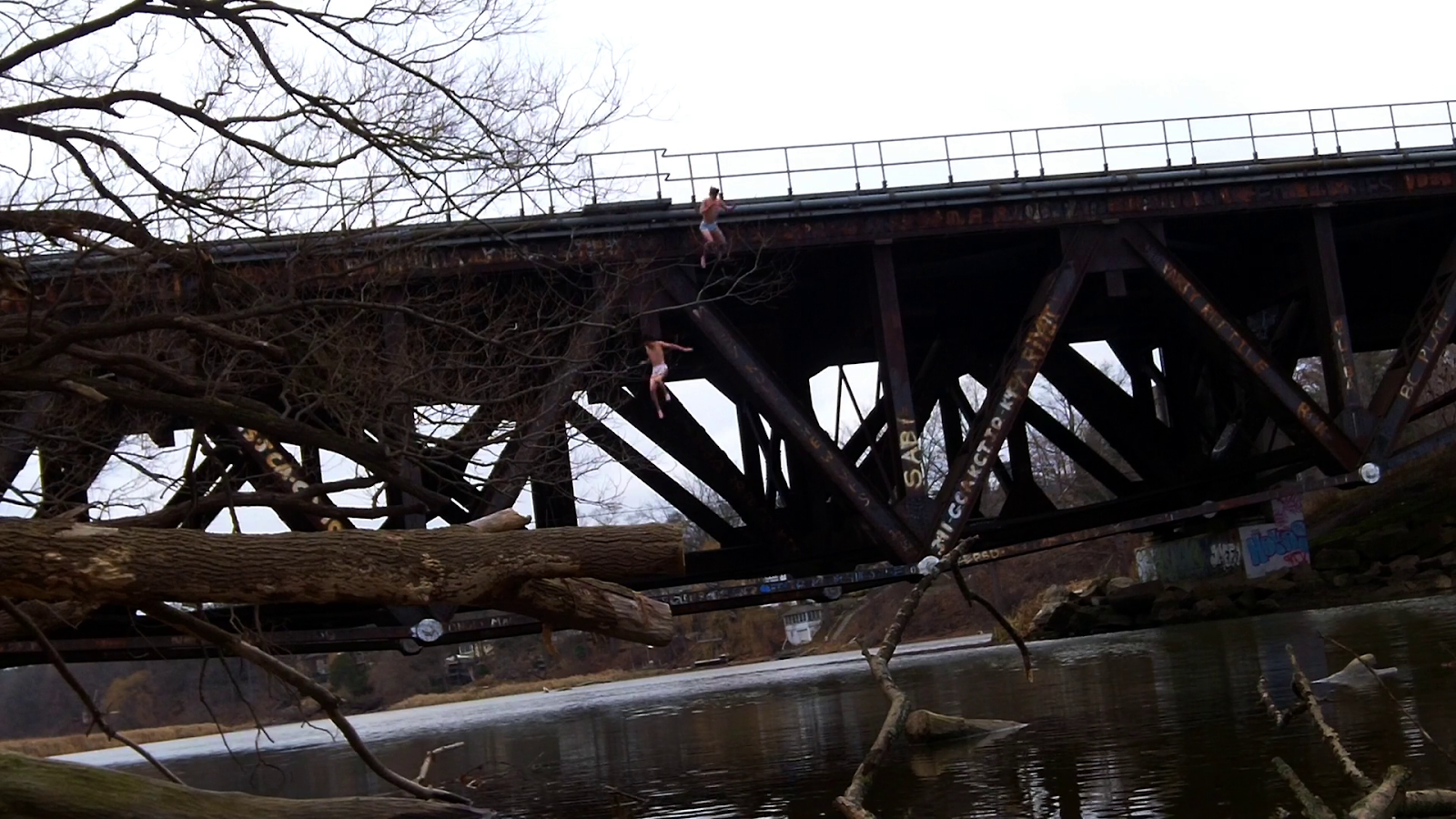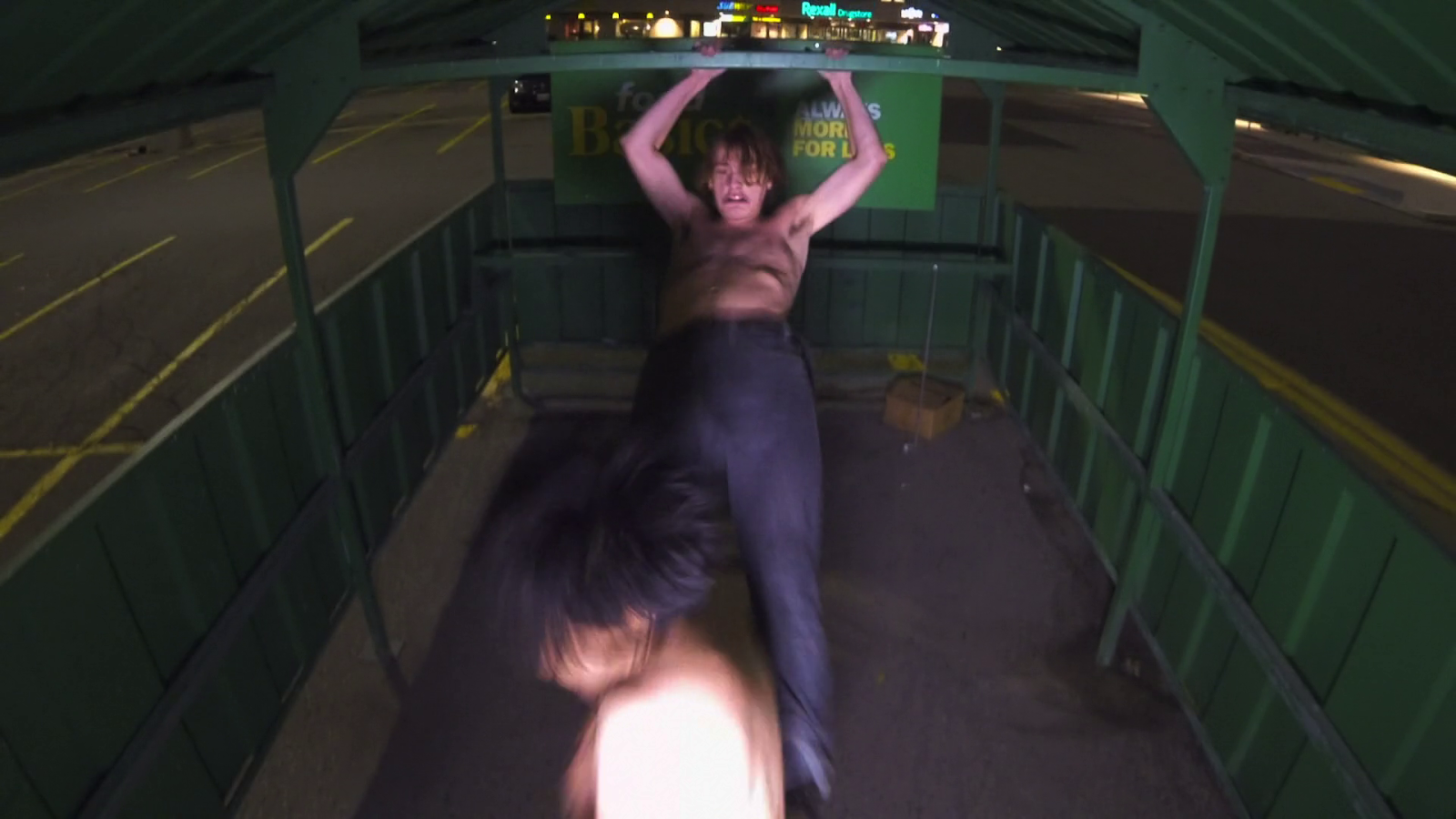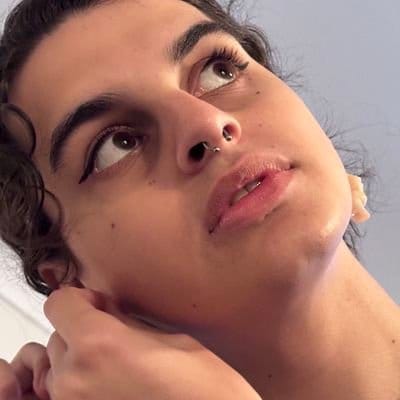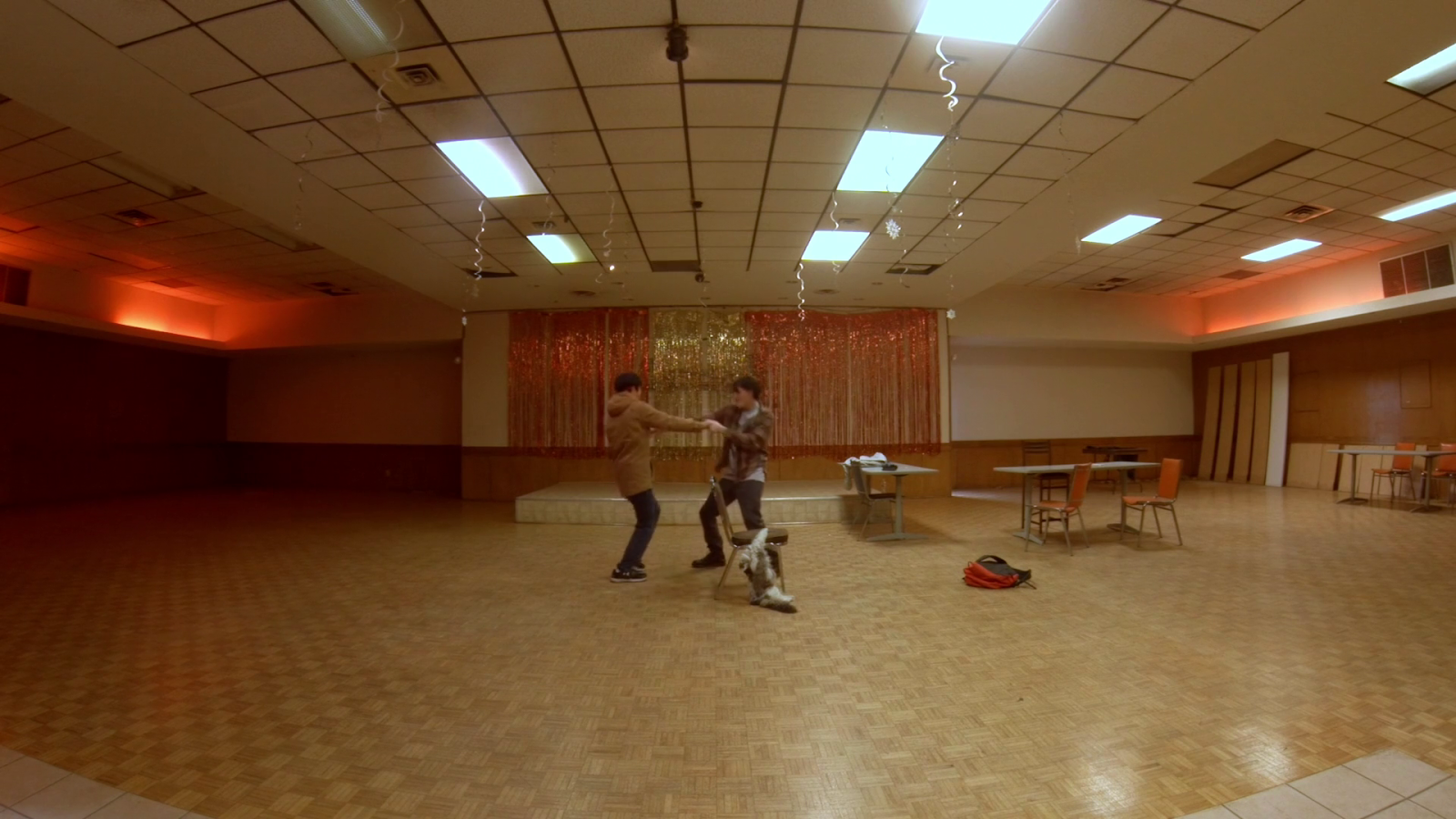Every once in a while you watch a movie that profoundly moves you. A lot of the time you don’t really understand why.
I guess this is why we watch movies. To feel a connection. To feel represented. There’s a certain indescribable feeling that comes with watching something that’s truly special. Something indescribable but once you feel it, you know exactly what it is. It’s like the magic of cinema coursing through your veins, the unnameable high of true art. Watching Therapy Dogs (2022), a documentary made by Class of 2019, Canadian high school students, I felt as if I was watching cinema in its purest form, a world of possibilities opening up before my eyes.
Static Vision had very kindly let us at Film Soc co-present the screening of the film for Metamorphoses, their festival structured around the theme of change and transformation. This theme resonates with me significantly: so much of my life is structured around change, physical and emotional transformations which most people are spared the displeasure of experiencing. Some of the other films I’d seen at the festival affected me very deeply or left me with cinema experiences I won’t forget for a very long time (the Friday night screening of Howling III: The Marsupials (1987) being a significant highlight), but none will stay with me like the Therapy Dogs screening, even beyond the fact I had to get up in front of the whole cinema before the film.
Therapy Dogs is a film about high school. Scratch that. Therapy Dogs is the film about high school. No film has ever captured so accurately the feeling of that pivotal final year. The way that everything feels like the most important thing in the world, the way it feels like that world is ending, the desire to cling to your friends and scorn your enemies.
Having finished high school a year ago, these feelings are still so potent within me, so firmly within grasp that I could almost feel myself in every cringeworthy moment and bad decision. High school sucks. It’s boring and mundane and everyone treats you like shit and then you leave and what do you find? The real world is much crueller, nothing you’ve ever done matters and nobody wants to help you. This film has a prominent nihilistic streak, seen mostly clearly in the interludes focusing on Kevin, where his dream of moving to California and becoming a musician slowly fades as realistic expectations creep in and Kevin loses faith in his dream ever coming true. Maybe life is just a valley of crushed dreams.
There’s also a formal experimentalism on display here that is so fresh and exciting to me. The mix of narrative and documentary, with all the footage being shot without permission of peers, teachers or, at one point, a police officer. It gave me the same feeling I get when I watch Frederick Wiseman films, the “how did they even get that on camera?” of it all. But instead of slow-moving epics about crumbling institutions, it’s a high-paced, anarchic montage of just about every cliche high school moment. Shit parties, school plays, prom, it’s all here, shown exactly as it is. I often remark to people that We’re All Going to the World’s Fair (2021) is the only truly gen-z film to be made thus far, but I think Therapy Dogs might make the cut. There’s a distinct feeling of the overwhelming presence of social media and phones, mostly through the edit. A lot of the footage is shot on phones and many sections are cut together in a way that evokes scrolling through a tiktok feed and being bombarded with content. It really does feel like the birth of a new generation through cinema, a sight to behold.

The emotional thrust of the film of course lies with our two filmmaker/protagonists, Ethan Eng and Justin Morrice, and their friendship. “Bad ideas are better with friends,” a title card reads at one point, followed by a scene where Ethan and Justin jump off a bridge into a lake. Later, they fistfight in a shopping trolley bay before Ethan drunkenly tries to explain that he’d still love Justin even if they never saw each other again, only for Justin to interpret this as Ethan telling him he never wants to see him again. The argument that follows seems to fray their friendship, and this feeling remains throughout the remainder of the film.
I think, more often than not, love manifests itself as hatred. The deep bond between these two people that we get to see so many times, in particular in an early scene where they break into an abandoned building and share a dance, is in many ways solidified by this fight, their ability to hurt each other but remain close being a true testament to their friendship. It’s easily one of the most real portrayals of friendship ever put to film, simply because it is (seemingly) real. Therapy Dogs key strengths are exhibited in this amalgamation of reality and fiction.
There’s so much real emotion and pathos while, at the same time, the fictional narratives draw you in and keep you interested. What is real? Is any of it? I think that on some level this is quite a poignant way to approach high school as a concept, because so much of high school does feel divorced from the real world, despite the feeling at the time that it was all that mattered.

It’s rare to feel as if you’re watching something which pushes cinema forward as a medium. Especially these days when well over a century of cinematic innovation seems to have firmly cemented the art form in its ways, so that we may only create new art using the old methods. To me, Therapy Dogs represent a step towards a new method, one that could only have been developed by someone as youthful as Ethan Eng (he was just 17 when he started directing this film) but also one which feels deeply connected to cinema of the past.
The most resonant scene of the film, for me, occurs somewhere towards the middle, where Ethan’s voiceover tells us that he’s been “obsessed” with a dead person named Tyler, a former student at his school who committed suicide the day before graduation. The camera lingers on his memorial for a little bit before showing us a film that Tyler himself made in 2007. The film is eerily similar to Therapy Dogs, featuring the mundanities of high school life, kids messing around, etc., but you come to realise just how integral this section is to the rest of the film once you notice that Ethan and Justin have been recreating parts of Tyler’s film. The most prominent example I noticed was a part where a student crashes into a pile of chairs set up in a hallway, a moment recreated earlier by Justin. In this way, Eng ties his film to the past, not just of cinema but a much more personal social history of the setting. There’s something so affecting there, not just in the fact that this is a real story of a real person’s suicide, but in how that echoes through time and through this film, all the way until the end where Eng breaks away from reality to deliver a truly shocking moment, only to spend the final portion of the film lingering on grief, youth and the nature of things coming to an end.
Maybe everything does have to come to an end. But the movies that move us?
They live forever.

